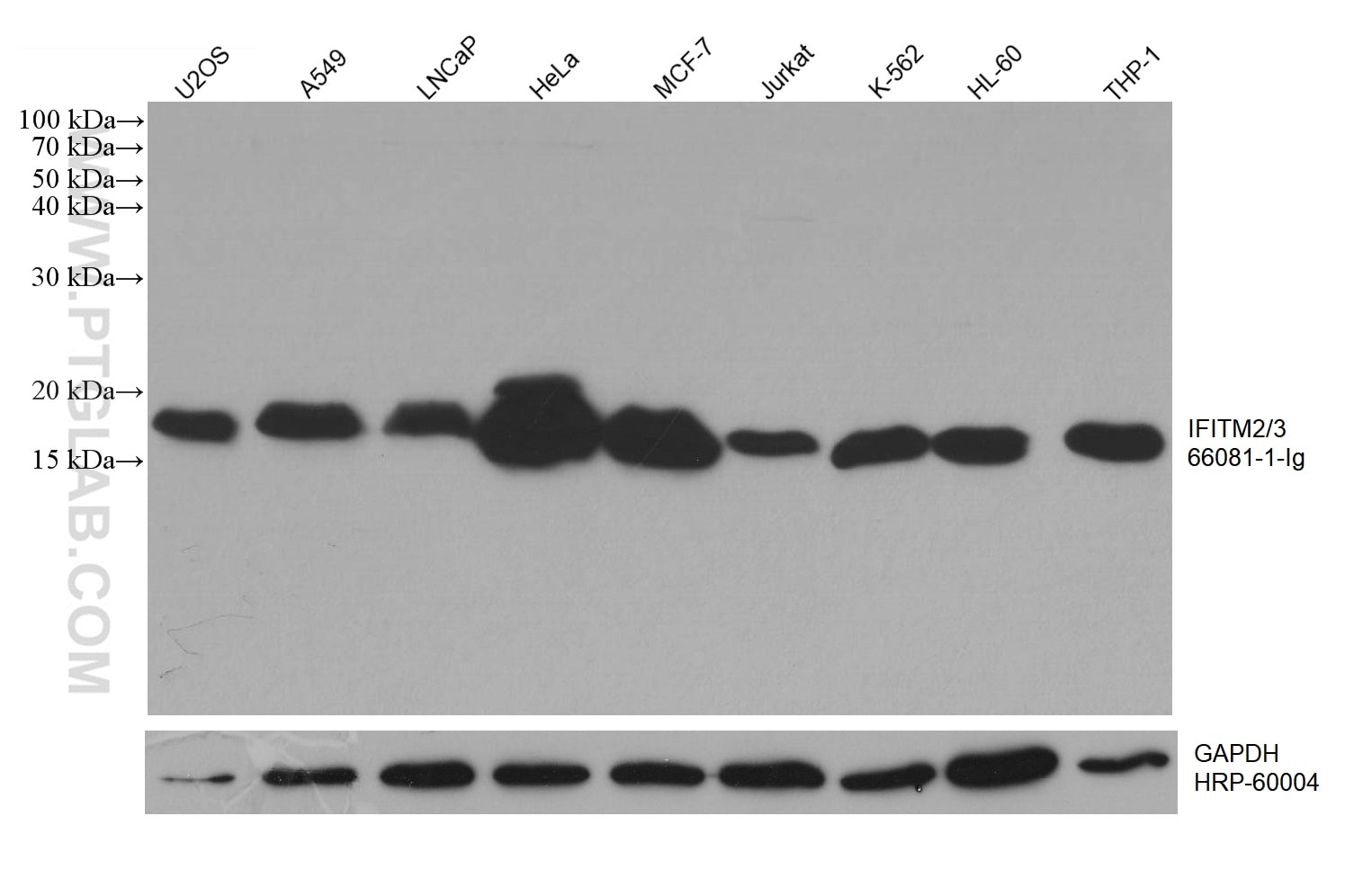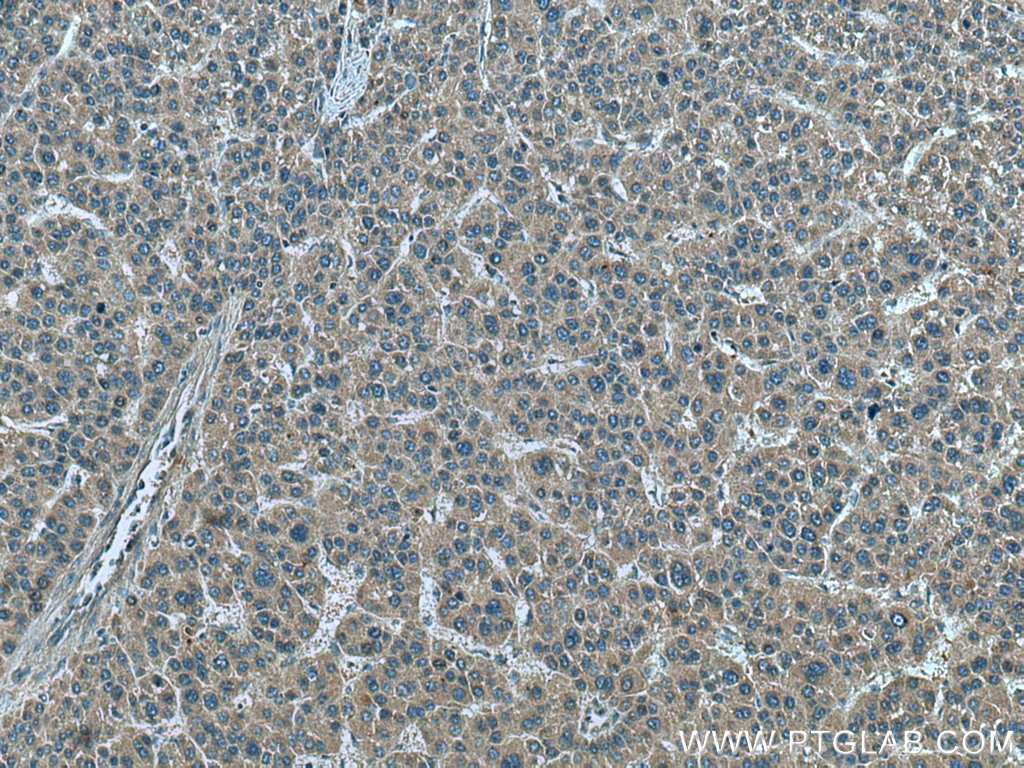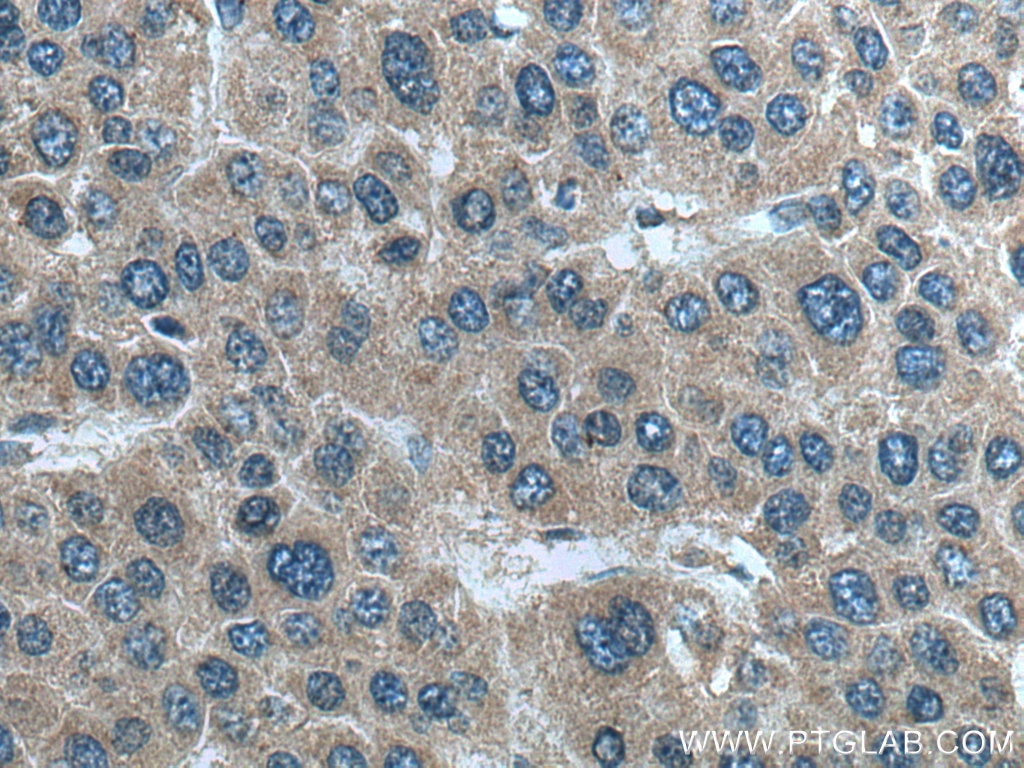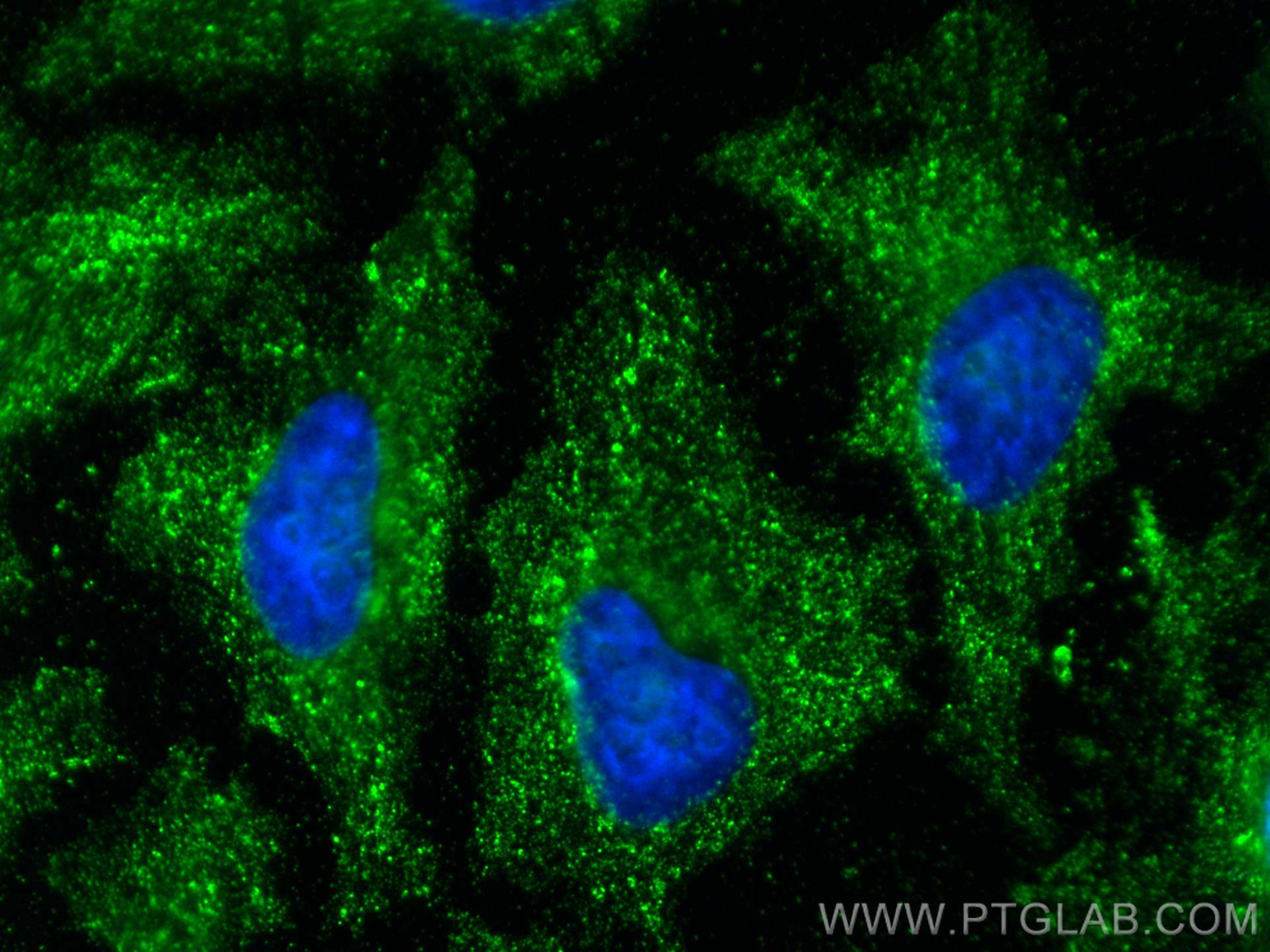Tested Applications
| Positive WB detected in | U2OS cells, THP-1 cells, HL-60 cells, K-562 cells, Jurkat cells, MCF-7 cells, HeLa cells, LNCaP cells, A549 cells |
| Positive IHC detected in | human liver cancer tissue Note: suggested antigen retrieval with TE buffer pH 9.0; (*) Alternatively, antigen retrieval may be performed with citrate buffer pH 6.0 |
| Positive IF/ICC detected in | HeLa cells |
Recommended dilution
| Application | Dilution |
|---|---|
| Western Blot (WB) | WB : 1:5000-1:50000 |
| Immunohistochemistry (IHC) | IHC : 1:500-1:2000 |
| Immunofluorescence (IF)/ICC | IF/ICC : 1:200-1:800 |
| It is recommended that this reagent should be titrated in each testing system to obtain optimal results. | |
| Sample-dependent, Check data in validation data gallery. | |
Published Applications
| KD/KO | See 2 publications below |
| WB | See 11 publications below |
| IHC | See 1 publications below |
| IF | See 8 publications below |
| IP | See 1 publications below |
Product Information
66081-1-Ig targets IFITM2/3 in WB, IHC, IF/ICC, IP, ELISA applications and shows reactivity with human samples.
| Tested Reactivity | human |
| Cited Reactivity | human |
| Host / Isotype | Mouse / IgG1 |
| Class | Monoclonal |
| Type | Antibody |
| Immunogen |
CatNo: Ag17863 Product name: Recombinant human IFITM3 protein Source: e coli.-derived, PET28a Tag: 6*His Domain: 1-133 aa of BC006794 Sequence: MNHTVQTFFSPVNSGQPPNYEMLKEEHEVAVLGAPHNPAPPTSTVIHIRSETSVPDHVVWSLFNTLFMNPCCLGFIAFAYSVKSRDRKMVGDVTGAQAYASTAKCLNIWALILGILMTILLIVIPVLIFQAYG Predict reactive species |
| Full Name | interferon induced transmembrane protein 3 (1-8U) |
| Observed Molecular Weight | 15-20 kDa |
| GenBank Accession Number | BC070243 |
| Gene Symbol | IFITM3 |
| Gene ID (NCBI) | 10410 |
| RRID | AB_11182821 |
| Conjugate | Unconjugated |
| Form | Liquid |
| Purification Method | Protein G purification |
| UNIPROT ID | Q01628 |
| Storage Buffer | PBS with 0.02% sodium azide and 50% glycerol, pH 7.3. |
| Storage Conditions | Store at -20°C. Stable for one year after shipment. Aliquoting is unnecessary for -20oC storage. 20ul sizes contain 0.1% BSA. |
Background Information
IFITM3, also named as interferon-inducible protein 1-8U, belongs to the CD225 family. It is IFN-induced antiviral protein that mediates cellular innate immunity to at least three major human pathogens, namely influenza A H1N1 virus, West Nile virus (WNV), and dengue virus, by inhibiting the early steps of replication. IFITM3 is identified as interferon-induced cellular proteins that restrict infections by retroviruses and filoviruses and of influenza virus and flaviviruses, respectively. IFITM3, the most potent antiviral IFITM, was found to inhibit an uncharacterized early infectious event after VSV endocytosis, but before primary transcription of its viral genome. IFITM proteins are viral restriction factors that can inhibit infection mediated by the influenza A virus (IAV) hemagglutinin (HA) protein. They differentially restrict the entry of a broad range of enveloped viruses, and modulate cellular tropism independently of viral receptor expression. This antibody recognizes both IFITM2 and IFITM3.
Protocols
| Product Specific Protocols | |
|---|---|
| IF protocol for IFITM2/3 antibody 66081-1-Ig | Download protocol |
| IHC protocol for IFITM2/3 antibody 66081-1-Ig | Download protocol |
| WB protocol for IFITM2/3 antibody 66081-1-Ig | Download protocol |
| Standard Protocols | |
|---|---|
| Click here to view our Standard Protocols |
Publications
| Species | Application | Title |
|---|---|---|
Science IFITM proteins inhibit placental syncytiotrophoblast formation and promote fetal demise. | ||
Proc Natl Acad Sci U S A mTOR inhibitors lower an intrinsic barrier to virus infection mediated by IFITM3. | ||
EMBO Rep Natural mutations in IFITM3 modulate post-translational regulation and toggle antiviral specificity. | ||
MBio Late Endosomal/Lysosomal Cholesterol Accumulation Is a Host Cell-Protective Mechanism Inhibiting Endosomal Escape of Influenza A Virus. | ||
Front Immunol Influenza A Virus Facilitates Its Infectivity by Activating p53 to Inhibit the Expression of Interferon-Induced Transmembrane Proteins.
|
Reviews
The reviews below have been submitted by verified Proteintech customers who received an incentive for providing their feedback.
FH Claudia (Verified Customer) (06-20-2022) | The antibody worked very well for the analysis of IFITM2/3 expression in permanent cell lines.
|










